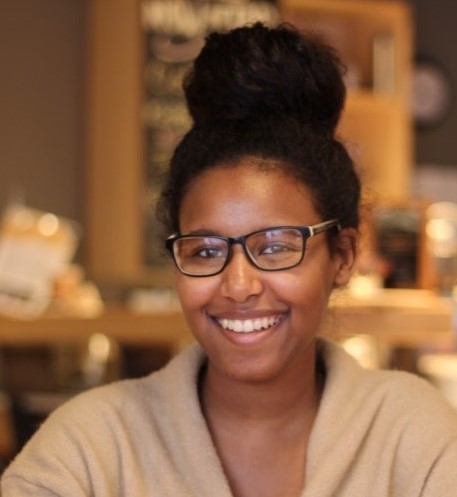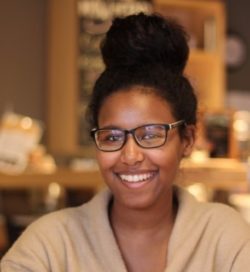
Illili Ahmed
By Ililli Ahmed
What makes someone beautiful? I know this is a pretty loaded question Is it a person’s features that set them apart, or their personality that shines through? And while sometimes subjective, there is no denying that what is considered beautiful is also determined by cultural and societal norms. So, however you answered my initial question, don’t forget to also ask yourself, who’s setting the standard for your response? In the case of most Westernized countries though, the answer is pretty well known: we perceive beauty from a Eurocentric point of view.
Now, you may be wondering what I mean by this…after all, every race is beautiful! Although this is completely true, the idea of traditional, European features being socially viewed as the standard of beauty is also a chilling reality. The proof is everywhere; just search up “beautiful man” or “beautiful woman” on any search engine… the results are overwhelming. Shockingly, the majority of the pictures you will find are of white men and women with straight hair, small noses and light eyes and hair (another interesting observation is that the men are often dressed in suits, while the women are nearly nude…but that’s an article for another time). This proves that society’s default is the notion that white people set the standard for what it means to be beautiful.
At this point, it’s pretty clear how devastating this way of thinking can be: plus, white dominance is so prominent globally (partly due to the negative effects of colonialism) that these white-centric beauty standards can be found almost everywhere! Countries such as India, South Africa, China and Nigeria have all seen increases in the use of skin bleaching creams, as westernized beauty standards have become imbedded in their cultures. In fact, the use of these products have become so overwhelming that The World Health Organization reported that 77% of Nigerian women use skin bleaching creams regularly, while South Africa had a user population rate of approximately 35%. With these shocking statistics, it’s easy to see that despite the diverse and unique features native to these countries, it is all too easy to succumb to the promotion of Eurocentric beauty. In addition, researchers have linked the high usage of these products to Africa and Asia’s colonial history, where white skin was (and still is) seen as the epitome of beauty.
Unfortunately, this is only the tip of the iceberg when looking at the effects of white-centric beauty. Not only do many people of colour feel obligated to change their complexion in order to be seen as beautiful, but thousands of others also opt to alter their natural hair and noses to further comply to these restrictive beauty standards. Sadly, I too am a victim of these practices, and was once an avid hair permer (biggest mistake ever).
The good news is, even though the glorification of traditionally white attributes is everywhere (and avoiding them is like a minefield for people of colour), there are many different ways to curve and eliminate their negative effects. Initiatives such as #BlackOutDay are openly shedding light on the problem of white-centric beauty standards. The fairly recent #Blackoutday movement has particularly sparked change in many communities since its debut a little over a year ago. The movement began after a group of Black bloggers aimed to alter Western beauty ideals by showcasing beautiful, bright and successful Black folk. On the sixth day of every third month, Black people around the world post a selfie with the hashtag #blackoutday, to prove that being a person of colour is truly magnificent.
Small steps like this are huge advances in the long run, and with increased representation of minorities on TV (Olivia Pope, Mindy Lahiri, Jessica Huang), I’d say that in a few generations, beauty will be more inclusive than ever before. So, the next time you ask yourself what beauty is, make sure to catch how much of your answer is coming from society’s eurocentrism, and how much is coming from your own emotions and experiences.
About the writer
Ililli Ahmed is an 11th grade student who loves onion rings, equality and Beyoncé (not in that order). In the past, she’s written articles for Radio-Canada, and is a regular youth contributor for ‘Black Ottawa Scene’. Ililli is also co-president of many school clubs, such as the Feminism Club. Her role models are her parents and Olivia Pope from Scandal. You can contact her at [email protected]

